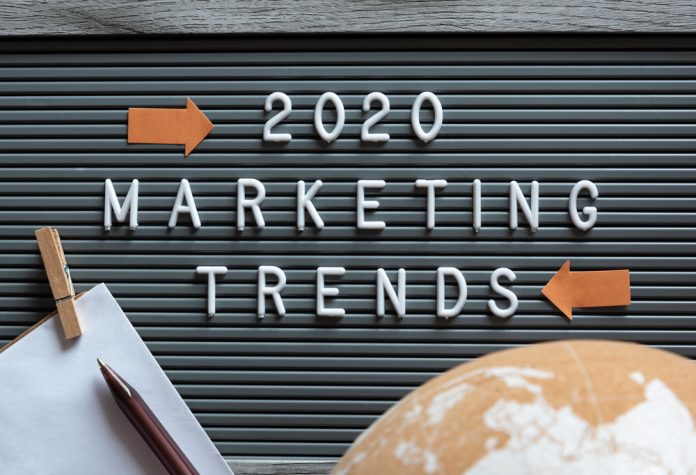Keeping track of marketing trends is one of the best ways to guarantee your marketing plans are always relevant. You don’t have to jump on every trend as soon as it arises, but having an awareness of where things are headed can help to prevent any confusion.
Some marketing trends never take off, and some have become an essential part of the marketing mix. Social media, for example, was once just a trend that some organisations tried to side-step. You can imagine what happened to those companies when they were late to the party.
In this guide, we will look at 6 digital marketing trends that are taking shape in 2020 and how you can add these to your marketing mix. You don’t have to jump on board every single trend, but an awareness of how these might someday impact your marketing plans can help you to stay one step ahead of the competition.
1. Conversational marketing
Most marketers have spent at least a bit of time focussing on funnel marketing in the past. The theory is that you create a marketing journey that will take your buyer from discovery to conversion. But people don’t want to be lumped into this type of journey. They want to feel unique and special. According to Abacus Marketing they want a journey that answers their questions, not every question under the sun.
This is where conversational marketing can be helpful. Using chatbots and personalisation, you can create a user journey that reacts and responds to the needs of every single customer and treats them like an individual.
2. Automation
Automation is commonly used across email marketing and social media, but it could soon be active on websites. Instead of serving the same pop-up offer to every user who lands on your site, you can save your best offers to the most engaged customers. This type of automation can also use machine learning to predict the best time to serve an offer to your website visitors to increase the chances of conversion.
3. Analytics-driven decisions
Analytics are becoming more complicated and in-depth. The arrival of GDPR made organisations sit up and pay attention to what they are asking their audience to share with them. The result was not a rollback of the data we are collecting, but a greater appreciation for what this data means.
Analytics data can and should be used to inform marketing decisions. It can be used for everything from optimising your website for conversions, to shaping your keyword strategy. SEO expert Paul Gordon recommends using data analytics to help bring more insight into your SEO campaigns.
4. Marketing technology
If your marketing toolkit doesn’t include a few bits of paid tech at this point, you could be missing out on huge amounts of insight and data. Marketing technology is all set to make the role of the marketer easier, not to take away jobs. And with the boring grunt work taken care of, marketers can focus on creativity and results.
5. Social shopping
With the rise of shoppable social media posts, social shopping could be set to take off in 2020. Social shopping has had a slow start, mainly because social networks couldn’t land on a format that shoppers wanted to use. But shoppable social media posts appear to have cracked the code. This could be the year we see an explosion of users buying directly from their social media feed.
6. Hyper-personalisation
We’ve had personalisation in email marketing for quite some time, but we could soon see the rise of hyper-personalisation. This method of marketing uses machine learning and data to create marketing messages that appear to be targeted at individuals, not groups. Instead of grouping your email lists into segments based on behaviour, you generate emails that are personalised to each person on the list.


































